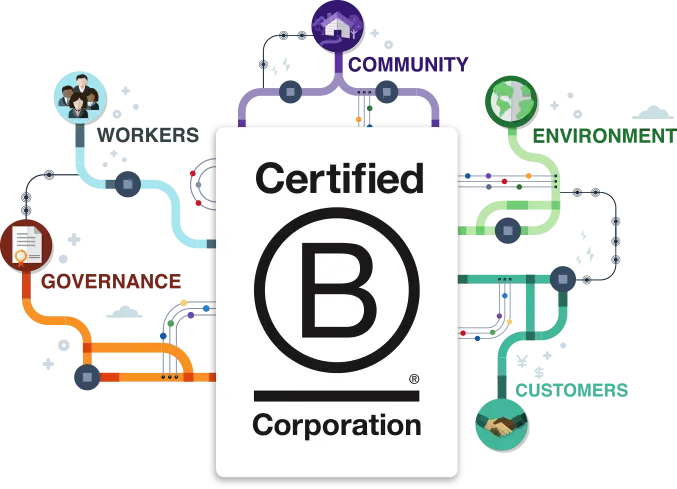The world of socially responsible businesses is growing rapidly, with more and more companies looking to make a positive impact on society and the environment. When it comes to socially responsible business models, two terms that are often used interchangeably are Benefit Corporations and B-Corps. While they share similarities, the differences between Benefit corporations and B-corps can significantly affect businesses and their stakeholders.
Table of Contents
What is a Benefit Corporation?
A Benefit Corporation, also known as a B-Corp, is a type of for-profit corporation that is legally required to consider the impact of its decisions on its shareholders, society, and the environment. This legal requirement is enshrined in the company’s articles of incorporation, which must state that the company’s purpose is to impact society and the environment and generate profits positively.
To become a Benefit Corporation, a company must meet certain social and environmental performance standards, accountability, and transparency. A third-party organization, such as B Lab, assesses these standards and issues the B-Corp certification.
What is a B-Corp?
B-Corp is a certification granted to companies that meet certain social and environmental performance standards, accountability, and transparency. Unlike a Benefit Corporation, a B-Corp is not a legal structure. Instead, it is a voluntary certification granted by B Lab, a non-profit organization promoting socially responsible business practices.
To become a B-Corp, a company must go through a strict assessment that assesses its influence on its workers, customers, community, and the environment. The assessment covers many areas, including governance, ethics, transparency, and environmental impact.
The Difference Between Benefit Corporations and B-Corps
While Benefit Corporations and B-Corps share a common goal of promoting social and environmental responsibility, the two have important differences. So, what is the difference between benefit corporations and B corps?
Legal Status
One of the most significant differences between Benefit Corporations and B-Corps is their legal status. A Benefit Corporation is a legal structure recognized in several US states, including California, New York, and Delaware. By contrast, a B-Corp is not a legal structure and has no legal recognition.
Purpose
Another key difference between Benefit Corporations and B-Corps is their purpose. A Benefit Corporation’s purpose is to create a positive impact on society and the environment in addition to generating profits. This purpose is enshrined in the company’s articles of incorporation, which must state that the company is a Benefit Corporation committed to creating a public benefit.
By contrast, a B-Corp aims to meet certain social and environmental performance standards, accountability, and transparency. While a B-Corp may prioritize social and environmental responsibility, this is not a legal requirement.
Accountability
Another difference between Benefit Corporations and B-Corps is their accountability. Benefit Corporations are legally required to consider the impact of their decisions on society and the environment. This means they are accountable to their shareholders and stakeholders, including their employees, customers, and the community.
By contrast, B-Corps are accountable only to their stakeholders, as they are not a legal structure. While B-Corps may prioritize social and environmental responsibility, they are not legally responsible.
Summary
There are important differences between benefit corporations and b-corps, as discussed above. Ultimately, whether a business becomes a Benefit Corporation or a B-Corp depends on its goals, values, and priorities. By understanding the difference between Benefit Corporations and B-Corps, businesses can make informed decisions that align with their values and contribute to a more sustainable and equitable future.

